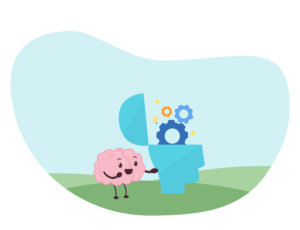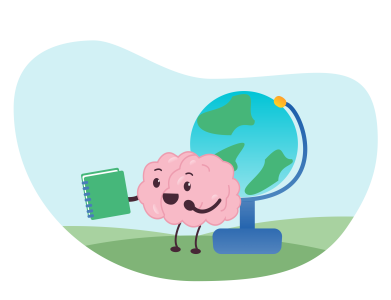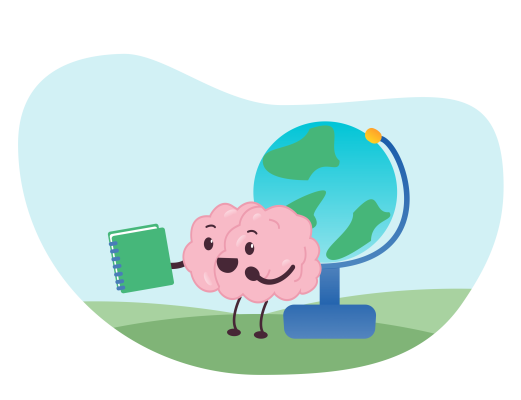In the first five years of life, children experience explosive growth and development in four key areas. These include the motor (physical), linguistic (talking), cognitive (thinking), and social and emotional domains.
What is Cognitive Development?
Cognitive development refers to a child’s level of thought, curiosity, and ability to understand the world around them. Education is the process by which a child acquires the tools they need to become independent thinkers and rational citizens of the world. Improvements in one’s mental faculties include the maturation of the brain.
Supporting your child’s cognitive growth from the moment of birth can establish the foundation for academic and lifelong achievement. Children who are capable of distinguishing between sounds as young as six months
have a greater chance of developing the skills necessary for reading by the time they are four or five.
Cognitive Evolution
In the 1920s, a French psychologist named Jean Piaget was tasked with modifying English intelligence tests for the French market. Along the way, he realized that kids don’t think like grownups and see the world differently. He started studying children from infancy through adolescence, observing toddlers and infants, and interviewing and observing adolescents.
In 1936, Paiget released his theory of how the mind grows and changes. The idea behind this school of thought is that kids keep getting smarter and smarter as they grow and learn from their experiences, just like their IQ does.
According to Piaget, a child’s brain goes through four distinct phases as it develops. Some children may take longer than others to progress through these phases, but they always occur in sequence. Every new level is an opportunity to improve upon the foundation laid down in earlier ones.
Stages of Cognitive Development
This article will discuss the four stages of cognitive development, which are:
- Sensorimotor
- Preoperational
- Concrete operational
- Formal Operational
Sensorimotor Stage
From birth until around 18 to 24 months of age, children are in the sensorimotor stage of development. Children in the sensorimotor stage learn about the world around them by moving around and using their senses of sight, hearing, smell, and taste to gather information.
The child learns object permanence, the realization that an object persists even when the child is no longer able to see it.
For instance, if a child’s toy is hidden under a blanket, he or she will still go looking for it. If the kid doesn’t have this ability, he or she might think the toy just vanished.
In addition to physical and motor skills, early language skills develop during the sensorimotor stage.
Sensorimotor Activities
A few examples of useful activities during the sensorimotor phase are:
- Engage in a game of “peek-a-boo.”
- Enjoy some good reading!
- Give the kids toys with different textures to explore.
- Participate in musical activities.
- Toss a ball back and forth.
- Sing Songs
Preoperational Stage
According to Piaget, the preoperational stage of cognitive development takes place between the ages of two and seven. During this developmental period, kids get a head start on learning how to represent concepts symbolically. The idea here is that one thing can stand in for another. A child might use a cardboard box to act as a “house” in a game of make-believe.
Toddlers at this age tend to be self-absorbed and assume that others share their perspectives on the world and their emotional experiences. The term for this is “egocentrism.”
During the preoperational phase, there is also a tendency toward centrism. This means a kid can’t look at a problem or situation from multiple perspectives. A child, for instance, might feel bad if they discover that their friend has more candy than them, regardless of the size of the individual pieces.
At this stage, it’s common for children to engage in “parallel play,” in which they play near each other but not necessarily with them. They also think that toys and other things that can’t move on their own are alive and have feelings.
Preoperational Activities
Examples of proper pre-operational stage activities include:
- Make a fort.
- Color
- Paint
- Have a charades game.
- Play with Play-Doh.
- Use building blocks.
- Play “house” or “school.”
Concrete Operational Stage
Between the ages of seven and eleven, children enter a period of concrete operational development. Though the child’s capacity for abstract thought is growing, they still have trouble thinking beyond the “concrete” objects in their immediate surroundings.
During this time period, six primary concrete operations develop. Among them are:
Conservation: A child with this ability knows that the quantity of a given item or quantity of things remains the same even if their appearance changes. A glass of milk looks different in a tall glass than it does in a short glass, even though the volume of the milk remains the same.
Classification: This is the ability to put things into groups based on things like color, shape, or size.
Seriation: The ability to sequence things in a sensible way. For instance, the child could sort blocks in size order.
Reversibility: Knowing that a process can be turned around is a necessary skill. A balloon, for instance, can be inflated with air and then deflated back to its original size.
Decentering: A child with this ability can consider several angles of a problem or situation at once. A child will recognize that even though two candy bars have the same facade, they actually contain different flavors.
Transitivity: Possessing this ability allows one to see how different factors affect one another. For instance, if John is older than Susan and Susan is older than Joey, then John is older than Joey.
Concrete Operational Activities
During the concrete operational stage, appropriate actions include:
- Make use of a set of measuring cups (for example, demonstrate how one cup of water fills two half-cups).
- Find solutions to elementary logical puzzles.
- Practice some simple math exercises.
- Play word games.
- Use board games.
Formal Operational Stage
According to Piaget, cognitive development concludes during the teenage and adult years. At this point, a person is able to think abstractly and solve hypothetical problems.
At this point in development, children also learn deductive reasoning, or the ability to draw conclusions using data gathered from their surroundings. That one can tell the difference between different dog breeds and not just think of them all as “dogs” indicates this ability.
Formal Operational Stage Activities
During the formal operational stage, it is appropriate to do things like:
- Use board games.
- Learn the art of cooking.
- Find the answers to the crossword and the logic puzzles.
- Pursue Interests
- Take up an instrument and play.
- Read Books
In Conclusion
According to Piaget, a child progresses from the sensorimotor stage to the preoperational stage to the concrete operational stage to the formal operational stage as they develop their thinking skills. These developmental stages roughly correspond to the years between birth and adulthood. Although children may move through these phases at different rates, Piaget maintains that they occur in a sequential manner.
There are many different theories of development in the field of psychology, and Piaget’s account of cognitive growth is just one of many. Even if you disagree with Piaget on some points, the stages he describes can still give you useful information about how to foster your child’s intellectual growth.







